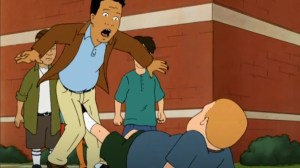
It might be hard to believe for some, but it has been almost six years since the original X-Men were brought from the past to join the modern team by Brian Michael Bendis and Stuart Immonen in All-New X-Men #1. What began as a twist for what turned out to be Bendis’ last major overhaul of a Marvel Comics property has grown to become a part of the entire X-Men line of comics DNA during that time. The original five X-Men, Cyclops, Beast, Iceman, Angel, and Marvel Girl, have regularly featured in their own team series, crossovers, events, and even several solo titles. Most of this occurred at a time when they shared the stage with their grown counterparts, as only death kept modern incarnations of Scott Summers and Jean Grey away for a portion of their stay. While this time travel plot might have seemed like a single story idea when it was introduced, it has become something much bigger.
Videos by ComicBook.com
While the past six years have delivered some excellent new series and great X-Men stories, it’s time to admit that the time-displaced X-Men have finally reached their expiration date (if they haven’t already passed it). The new event miniseries Extermination from Ed Brisson and Pepe Larraz that debuts this week is taking a hard look at this team and bringing their story to a close. While it’s unclear exactly how things will pan out, the creative team is clear from the start that this is the final chapter in the long time travel saga. The best possible response to that announcement is, it’s about time.

A Great Idea At The Start
When Beast traveled back in time to fetch himself and his original compatriots it might have been a terrible idea for his world, but it was a great one for the story of the X-Men. Bringing the very first team created by Jack Kirby and Stan Lee into the future provided an incredible contrast for readers to assess just how much the franchise had grown and how far these specific heroes had come. With the exception of Bobby Drake, much of what was revealed was tragic. After so many heroic battles the original X-Men found themselves either dead or irrevocably changed. Jean Grey was dead. Cyclops had become a militant leader who murdered his father figure. Angel was a ticking time bomb who had lost almost all of his memories. Beast’s addition of body hair turned out to be the least of his problems. As a metanarrative it helped readers contrast the full arc of X-Men history.
It also worked as a new challenge for the heroes involved, one that could not be solved with kinetic blasts or ice walls. The grown X-Men were forced to reflect on their choices in the most radical way possible, comparing youthful idealism with the compromises made in adulthood. While Beast hoped this would help to reunite the X-Men and put them back on a better course, it only served to enhance grudges and negative feelings. It may not have provided the happy ending that the team’s resident super genius wanted, but it did provide some excellent grist for the dramatic mill that is the X-Men.

The Solution Becomes The Problem
If the basis of this idea was to contrast the modern X-Men with all of their history against their original selves as a sort of blank canvas, then the inevitable problem should have been obvious to any person who has read superhero comics before. Characters tend to change very quickly given the monthly (or bi-weekly, in the case of Bendis’ X-Men) publication schedule and constant deluge of new problems. Looking at the early years of any superhero title, even the original X-Men, it is apparent how far characters will go over the course of a few years of new comics, even if that only reflects several months in their own timelines. The time-displaced X-Men could not continue to serve their original purpose within the X-Men line of comics for very long and that became evident very early in their six years of history.
Some changes were obvious, like Angel receiving alien wings during “The Black Vortex” event. Others were less so as Jean Grey and Scott Summers drifted apart, horrified at what their future selves had done to themselves and one another. Their leap to the future didn’t just provide a new framework for them to begin accumulating baggage, it accelerated the process. Knowledge of everything they might become radically changed many of their personalities and pushed them down new roads. All of the existing history surrounding their future selves and team provided a context that added new complications far more quickly than the original X-Men series. At the end of the first year they were not recognizable as the same characters brought to the future by Beast, and after six years they each have Wikipedia entries that rival their original six decade long history. This team of heroes went from being a point of clarification to one of complication faster than almost any reader could have anticipated.

End Of The Road
It’s not clear whether Bendis or his collaborators had a plan for how to end the story of the time-displaced X-Men when they began their story, but if they did it never materialized. That might be due to the popularity of the new(ish) characters, but whatever the reason the original X-Men outlasted Bendis’ stint on the title and became a regular part of the comics franchise. Despite years of rumors that their story might be brought to an end, they persisted as feature characters who often carried their own title. As that happened, they lost the vibrancy provided by the early comparisons and continued to complicate their own continuity and distract from the original characters they were connected to. Now that their ending has been officially announced as part of Extermination, it seems like Marvel Comics and the creators working on the X-Men line of comics finally have an idea on how to put this idea to bed.
The problem was never with the concept itself, but with its longevity. Time travel has been a big element in the stories of the X-Men since Chris Claremont took over the main series, and it has provided them with some of their most iconic stories. Events like “Days of Future Past” and “Age of Apocalypse” have continued to reverberate through Marvel Comics, but have also provided fans with endings that allowed them to be fondly remembered. Hopefully, Extermination will offer fans that same level of closure as it puts an end to this chapter in X-history.









